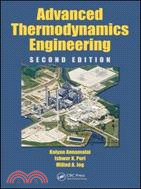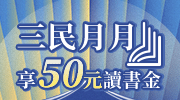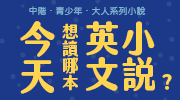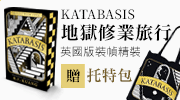Advanced Thermodynamics Engineering
商品資訊
系列名:CRC Series in Computational Mechanics and Applied
ISBN13:9781439805725
出版社:CRC Press UK
作者:Kalyan Annamalai; Ishwar K. Puri; Milind A. Jog
出版日:2011/01/17
裝訂/頁數:平裝/1142頁
規格:26.0cm*18.4cm*5.7cm (高/寬/厚)
版次:2
定價
:NT$ 11375 元優惠價
:
90 折 10238 元
若需訂購本書,請電洽客服 02-25006600[分機130、131]。
商品簡介
作者簡介
目次
商品簡介
Advanced Thermodynamics Engineering, Second Edition is designed for readers who need to understand and apply the engineering physics of thermodynamic concepts. It employs a self-teaching format that reinforces presentation of critical concepts, mathematical relationships, and equations with concrete physical examples and explanations of applications—to help readers apply principles to their own real-world problems.
Less Mathematical/Theoretical Derivations—More Focus on Practical Application
Because both students and professionals must grasp theory almost immediately in this ever-changing electronic era, this book—now completely in decimal outline format—uses a phenomenological approach to problems, making advanced concepts easier to understand. After a decade teaching advanced thermodynamics, the authors infuse their own style and tailor content based on their observations as professional engineers, as well as feedback from their students. Condensing more esoteric material to focus on practical uses for this continuously evolving area of science, this book is filled with revised problems and extensive tables on thermodynamic properties and other useful information.
The authors include an abundance of examples, figures, and illustrations to clarify presented ideas, and additional material and software tools are available for download. The result is a powerful, practical instructional tool that gives readers a strong conceptual foundation on which to build a solid, functional understanding of thermodynamics engineering.
Less Mathematical/Theoretical Derivations—More Focus on Practical Application
Because both students and professionals must grasp theory almost immediately in this ever-changing electronic era, this book—now completely in decimal outline format—uses a phenomenological approach to problems, making advanced concepts easier to understand. After a decade teaching advanced thermodynamics, the authors infuse their own style and tailor content based on their observations as professional engineers, as well as feedback from their students. Condensing more esoteric material to focus on practical uses for this continuously evolving area of science, this book is filled with revised problems and extensive tables on thermodynamic properties and other useful information.
The authors include an abundance of examples, figures, and illustrations to clarify presented ideas, and additional material and software tools are available for download. The result is a powerful, practical instructional tool that gives readers a strong conceptual foundation on which to build a solid, functional understanding of thermodynamics engineering.
作者簡介
Dr. Kalyan Annamalai received his BS from Anna University (Engineering College at Guindy), Chennai, MS from the Indian Inst. of Science, Bangalore, and Ph.D. from the Georgia Institute of Technology, Atlanta, USA. He worked at Brown University and later at AVCO-Everett Research Laboratory, Revere, Massachusetts, USA. He joined Texas A&M in 1981 as an Assistant Professor and is currently Paul Pepper Professor of Mechanical Engineering. He is also a Senior TEES Fellow of College of Engineering, Texas A&M. He is currently involved research projects dealing with coal and biomass combustion, gasification, NOx and Hg reductions using new reburn fuels and laser based sensor developments for NOx and Hg. He is a member of combustion institute and a fellow of American Society of Mechanical Engineers. He serves on the editorial boards of International Journal of Green Energy and Journal of Combustion, and serves as Associate Editor (Coal and Biomass) for the Transactions of ASME Journal of Engineering for Gas Turbines and Power.
Dr. Ishwar K. Puri is Professor and Department Head of Engineering Science and Mechanics at Virginia Tech. He is a Fellow of the American Society of Mechanical Engineers and of the American Association for the Advancement of Science. He serves as Secretary of the American Academy of Mechanics. He has edited a book on the environmental implications of combustion processes, and coauthored textbooks on advanced thermodynamics Engineering and on combustion science and engineering. He is the author of nearly 300 archival publications and conference presentations, and book chapters in the field of transport phenomena, fluid mechanics, combustion, and mathematical biology. He got his Ph.D. (1987), and M.S. (1984) degrees in Engineering Science (Applied Mechanics) from the University of California, San Diego after obtaining a B.Sc. (1982) in Mechanical Engineering from the University of Delhi (Delhi College of Engineering). He served as an Assistant Research Engineer at the University of California, San Diego from 1987-90. Thereafter, he was appointed as Assistant Professor in the Mechanical Engineering Department at the University of Illinois at Chicago (UIC) in 1990. He served at UIC as Associate Dean for Research and Graduate Studies (2000-01) and as Executive Associate Dean of Engineering (2001-04).
Dr. Milind A. Jog received his B. S. (Mechanical Engineering) in 1985 and M. S. in Mechanical Engineering (Thermal Fluid Science) in 1987, both from the Indian Institute of Technology, Bombay. He worked at Thermax Ltd. as a Design Engineer before joining the Ph. D. program. He received his Ph. D. from the University of Pennsylvania in 1993 and joined the faculty of the Department of Mechanical Engineering at the University of Cincinnati. Dr. Jog has received several research and teaching awards at the University of Cincinnati including the National Science Foundation CAREER Award, Sigma Xi Outstanding Investigator Award, Robert Hundley Award for Excellence in Teaching, and BP-Amoco Faculty Excellence Award. He was recognized as "Master Engineering Educator" by UC College of Engineering. He has published over 150 archival and journal papers in the field of sprays and atomization, two-phase flow, interfacial phenomena, and computational fluid dynamics and heat transfer. He is a member of the American Society of Mechanical Engineers and the Institute for Liquid Atomization and Spray Systems. He is a Regional Editor (North America) for the Journal of Enhanced Heat Transfer and has served as a Guest Editor for the ASME Journal of Heat Transfer.
Dr. Ishwar K. Puri is Professor and Department Head of Engineering Science and Mechanics at Virginia Tech. He is a Fellow of the American Society of Mechanical Engineers and of the American Association for the Advancement of Science. He serves as Secretary of the American Academy of Mechanics. He has edited a book on the environmental implications of combustion processes, and coauthored textbooks on advanced thermodynamics Engineering and on combustion science and engineering. He is the author of nearly 300 archival publications and conference presentations, and book chapters in the field of transport phenomena, fluid mechanics, combustion, and mathematical biology. He got his Ph.D. (1987), and M.S. (1984) degrees in Engineering Science (Applied Mechanics) from the University of California, San Diego after obtaining a B.Sc. (1982) in Mechanical Engineering from the University of Delhi (Delhi College of Engineering). He served as an Assistant Research Engineer at the University of California, San Diego from 1987-90. Thereafter, he was appointed as Assistant Professor in the Mechanical Engineering Department at the University of Illinois at Chicago (UIC) in 1990. He served at UIC as Associate Dean for Research and Graduate Studies (2000-01) and as Executive Associate Dean of Engineering (2001-04).
Dr. Milind A. Jog received his B. S. (Mechanical Engineering) in 1985 and M. S. in Mechanical Engineering (Thermal Fluid Science) in 1987, both from the Indian Institute of Technology, Bombay. He worked at Thermax Ltd. as a Design Engineer before joining the Ph. D. program. He received his Ph. D. from the University of Pennsylvania in 1993 and joined the faculty of the Department of Mechanical Engineering at the University of Cincinnati. Dr. Jog has received several research and teaching awards at the University of Cincinnati including the National Science Foundation CAREER Award, Sigma Xi Outstanding Investigator Award, Robert Hundley Award for Excellence in Teaching, and BP-Amoco Faculty Excellence Award. He was recognized as "Master Engineering Educator" by UC College of Engineering. He has published over 150 archival and journal papers in the field of sprays and atomization, two-phase flow, interfacial phenomena, and computational fluid dynamics and heat transfer. He is a member of the American Society of Mechanical Engineers and the Institute for Liquid Atomization and Spray Systems. He is a Regional Editor (North America) for the Journal of Enhanced Heat Transfer and has served as a Guest Editor for the ASME Journal of Heat Transfer.
目次
Thermolab Excel-Based Software for Thermodynamic Properties and Flame Temperatures of Fuels
Introduction
Importance, Significance and Limitations
Review of Thermodynamics
Mathematical Background
Overview of Microscopic/Nanothermodynamics
Summary
Appendix: Stokes and Gauss Theorems
First Law of Thermodynamics
Zeroth Law
First Law for a Closed System
Quasi Equilibrium (QE) and Nonquasi-equilibrium (NQE) Processes
Enthalpy and First Law
Adiabatic Reversible Process for Ideal Gas with Constant Specific Heats
First Law for an Open System
Applications of First Law for an Open System
Integral and Differential Forms of Conservation Equations
Second Law of Thermodynamics and Entropy
Thermal and Mechanical Energy Reservoirs
Heat Engine and Heat Pump
Consequences of the Second Law
Entropy
Entropy Balance Equation for a Closed System
Irreversibility
Entropy Measurements and Evaluation
Local and Global Equilibrium
Entropy: Energy Relation for Single Component Incompressible Fluids
Third Law
Entropy Balance Equation for an Open System
Internally Reversible Work for an Open System
Irreversible Processes and Efficiencies
Cyclic Processes
Entropy Balance in Integral and Differential Form
Maximum Entropy and Minimum Energy
Generalized Derivation of Equilibrium for a Single Phase
Multiphase Multicomponent Equilibrium
Availability
Optimum Work and Irreversibility in a Closed System
Availability or Exergy Analyses for a Closed System
Generalized Availability Analysis
Availability/Exergetic Efficiency
Chemical Availability
Integral and Differential Forms of Availability Balance
Postulatory (Gibbsian) Thermodynamics
Classical Rationale for Postulatory Approach
Simple Compressible Substance
Legendre Transform
Application of Legendre Transform
Work Modes and Generalized State Relation
Thermodynamic Postulates for Simple Systems
Fundamental Equations in Thermodynamics
State Relationships for Real Gases and Liquids
Equations of State
Virial Equations
Clausius-I Equation of State
VW Equation of State
Redlich-Kwong Equation of State
Other Two-Parameter Equations of State
Compressibility Charts (Principle of Corresponding States)
Boyle Temperature and Boyle Curves
Deviation Function
Three Parameter Equations of State
Generalized Equation of State
Empirical Equations of State
State Equations for Liquids/Solids
Thermodynamic Properties of Pure Fluids
Ideal Gas Properties
James Clark Maxwell, 1831–1879 Relations
Generalized Relations
Evaluation of Thermodynamic Properties
Pitzer Effect
Kesler Equation of State (KES) and Kesler Tables
Fugacity
Experiments to Measure (uo – u)
Vapor/Liquid Equilibrium Curve
Throttling Processes
Development Of Thermodynamic Tables
Thermodynamic Properties of Mixtures
Generalized Relations and Partial and Mixture Molal Properties
Useful Relations for Partial Molal Properties
Ideal Gas Mixture
Ideal Solution
Fugacity
Excess Property
Osmotic Pressure
Molal Properties Using the Equations of State
Phase Equilibrium for a Mixture
Miscible, Immiscible, and Partially Miscible Mixture
Phase Equilibrium
Simplified Criteria for Phase Equilibrium
Pressure and Temperature Diagrams
Dissolved Gases in Liquids
Deviations from Raoult’s Law
Stability
Criteria for an Isolated System
Mathematical Criterion for Stability
Application to Boiling and Condensation
Entropy Generation during Irreversible Transformation
Spinodal Curves
Determination of Vapor Bubble and Drop Sizes
Chemically Reacting Systems
Chemical Reactions and Combustion
Thermochemistry
First Law Analyses for Chemically Reacting Systems
Combustion Analyses in the Case of Nonideal Behavior
Second Law Analysis of Chemically Reacting Systems
Mass Conservation and Mole Balance Equations
Overview on Energy Consumption and Combustion
Reaction Direction and Chemical Equilibrium
Reaction Direction and Chemical Equilibrium
Criteria for Direction of Reaction for Fixed Mass System
Chemical Equilibrium Relations
Van’t Hoff Equation
Equilibrium for Multiple Reactions
Adiabatic Flame Temperature with Chemical Equilibrium
Gibbs Minimization Method
Appendix: Equilibrium Constant for any Reaction in Terms of Equilibrium
Constants of Elements
Availability Analysis for Reacting Systems
Entropy Generation through Chemical Reactions
Availability
Fuel Cells
Fuel Availability
IC Engines and Exergy
Thermal Sciences and Biological Systems
Biomass Processing
Food and Nutrients
Human Body
Metabolism
Thermochemistry of Metabolism in Biological Systems
Heat Transfer Analysis from the Body
Body Temperature and Warm and Cold Blooded
Second Law and Entropy Generation in Biological Systems
Entropy Generation Through Chemical Reactions
Lifespan, Energy and Entropy
Allometry
Problems
A Summary of Chapterwise Formulae
Appendix A: Tables
Appendix B: Charts
Introduction
Importance, Significance and Limitations
Review of Thermodynamics
Mathematical Background
Overview of Microscopic/Nanothermodynamics
Summary
Appendix: Stokes and Gauss Theorems
First Law of Thermodynamics
Zeroth Law
First Law for a Closed System
Quasi Equilibrium (QE) and Nonquasi-equilibrium (NQE) Processes
Enthalpy and First Law
Adiabatic Reversible Process for Ideal Gas with Constant Specific Heats
First Law for an Open System
Applications of First Law for an Open System
Integral and Differential Forms of Conservation Equations
Second Law of Thermodynamics and Entropy
Thermal and Mechanical Energy Reservoirs
Heat Engine and Heat Pump
Consequences of the Second Law
Entropy
Entropy Balance Equation for a Closed System
Irreversibility
Entropy Measurements and Evaluation
Local and Global Equilibrium
Entropy: Energy Relation for Single Component Incompressible Fluids
Third Law
Entropy Balance Equation for an Open System
Internally Reversible Work for an Open System
Irreversible Processes and Efficiencies
Cyclic Processes
Entropy Balance in Integral and Differential Form
Maximum Entropy and Minimum Energy
Generalized Derivation of Equilibrium for a Single Phase
Multiphase Multicomponent Equilibrium
Availability
Optimum Work and Irreversibility in a Closed System
Availability or Exergy Analyses for a Closed System
Generalized Availability Analysis
Availability/Exergetic Efficiency
Chemical Availability
Integral and Differential Forms of Availability Balance
Postulatory (Gibbsian) Thermodynamics
Classical Rationale for Postulatory Approach
Simple Compressible Substance
Legendre Transform
Application of Legendre Transform
Work Modes and Generalized State Relation
Thermodynamic Postulates for Simple Systems
Fundamental Equations in Thermodynamics
State Relationships for Real Gases and Liquids
Equations of State
Virial Equations
Clausius-I Equation of State
VW Equation of State
Redlich-Kwong Equation of State
Other Two-Parameter Equations of State
Compressibility Charts (Principle of Corresponding States)
Boyle Temperature and Boyle Curves
Deviation Function
Three Parameter Equations of State
Generalized Equation of State
Empirical Equations of State
State Equations for Liquids/Solids
Thermodynamic Properties of Pure Fluids
Ideal Gas Properties
James Clark Maxwell, 1831–1879 Relations
Generalized Relations
Evaluation of Thermodynamic Properties
Pitzer Effect
Kesler Equation of State (KES) and Kesler Tables
Fugacity
Experiments to Measure (uo – u)
Vapor/Liquid Equilibrium Curve
Throttling Processes
Development Of Thermodynamic Tables
Thermodynamic Properties of Mixtures
Generalized Relations and Partial and Mixture Molal Properties
Useful Relations for Partial Molal Properties
Ideal Gas Mixture
Ideal Solution
Fugacity
Excess Property
Osmotic Pressure
Molal Properties Using the Equations of State
Phase Equilibrium for a Mixture
Miscible, Immiscible, and Partially Miscible Mixture
Phase Equilibrium
Simplified Criteria for Phase Equilibrium
Pressure and Temperature Diagrams
Dissolved Gases in Liquids
Deviations from Raoult’s Law
Stability
Criteria for an Isolated System
Mathematical Criterion for Stability
Application to Boiling and Condensation
Entropy Generation during Irreversible Transformation
Spinodal Curves
Determination of Vapor Bubble and Drop Sizes
Chemically Reacting Systems
Chemical Reactions and Combustion
Thermochemistry
First Law Analyses for Chemically Reacting Systems
Combustion Analyses in the Case of Nonideal Behavior
Second Law Analysis of Chemically Reacting Systems
Mass Conservation and Mole Balance Equations
Overview on Energy Consumption and Combustion
Reaction Direction and Chemical Equilibrium
Reaction Direction and Chemical Equilibrium
Criteria for Direction of Reaction for Fixed Mass System
Chemical Equilibrium Relations
Van’t Hoff Equation
Equilibrium for Multiple Reactions
Adiabatic Flame Temperature with Chemical Equilibrium
Gibbs Minimization Method
Appendix: Equilibrium Constant for any Reaction in Terms of Equilibrium
Constants of Elements
Availability Analysis for Reacting Systems
Entropy Generation through Chemical Reactions
Availability
Fuel Cells
Fuel Availability
IC Engines and Exergy
Thermal Sciences and Biological Systems
Biomass Processing
Food and Nutrients
Human Body
Metabolism
Thermochemistry of Metabolism in Biological Systems
Heat Transfer Analysis from the Body
Body Temperature and Warm and Cold Blooded
Second Law and Entropy Generation in Biological Systems
Entropy Generation Through Chemical Reactions
Lifespan, Energy and Entropy
Allometry
Problems
A Summary of Chapterwise Formulae
Appendix A: Tables
Appendix B: Charts
主題書展
更多
主題書展
更多書展購物須知
外文書商品之書封,為出版社提供之樣本。實際出貨商品,以出版社所提供之現有版本為主。部份書籍,因出版社供應狀況特殊,匯率將依實際狀況做調整。
無庫存之商品,在您完成訂單程序之後,將以空運的方式為你下單調貨。為了縮短等待的時間,建議您將外文書與其他商品分開下單,以獲得最快的取貨速度,平均調貨時間為1~2個月。
為了保護您的權益,「三民網路書店」提供會員七日商品鑑賞期(收到商品為起始日)。
若要辦理退貨,請在商品鑑賞期內寄回,且商品必須是全新狀態與完整包裝(商品、附件、發票、隨貨贈品等)否則恕不接受退貨。













